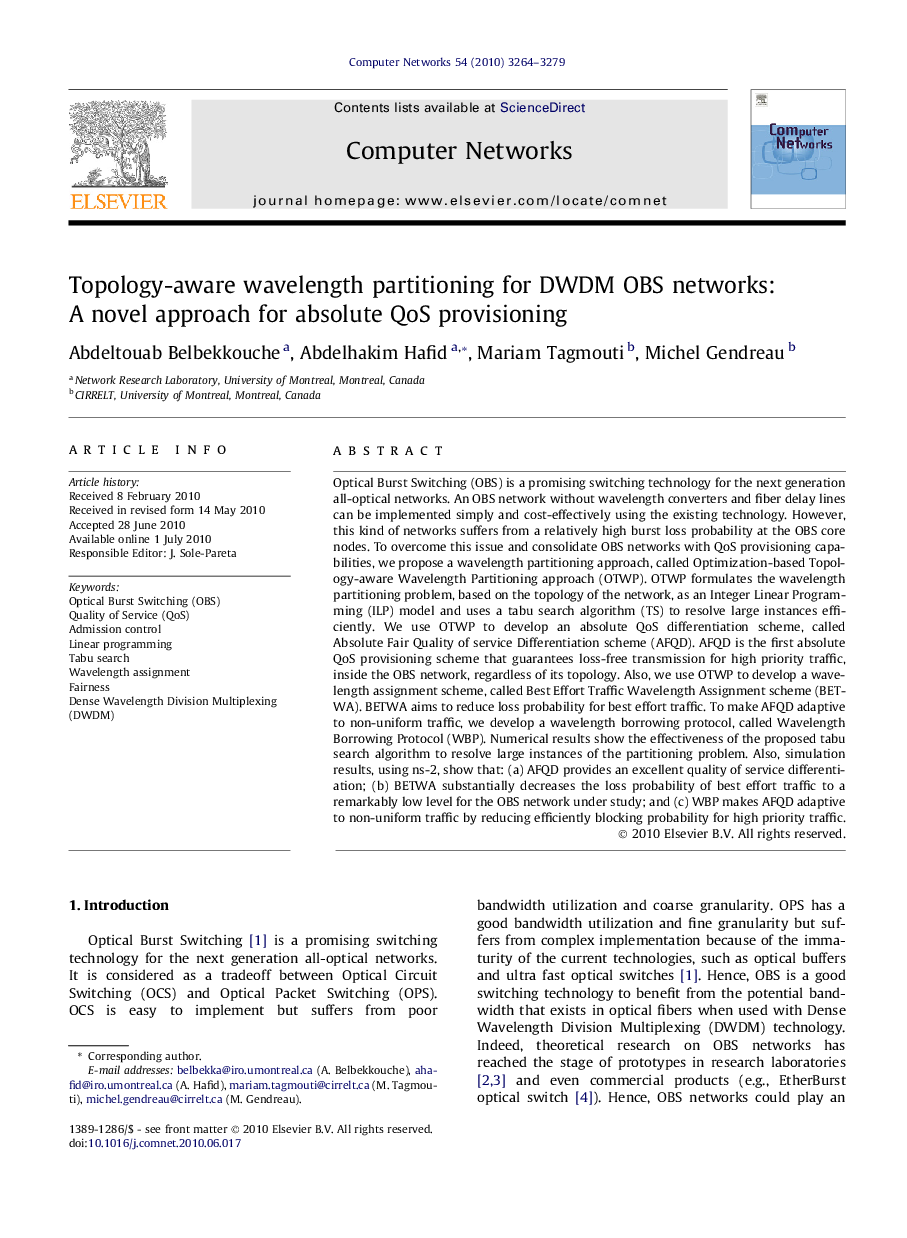| کد مقاله | کد نشریه | سال انتشار | مقاله انگلیسی | نسخه تمام متن |
|---|---|---|---|---|
| 452266 | 694494 | 2010 | 16 صفحه PDF | دانلود رایگان |

Optical Burst Switching (OBS) is a promising switching technology for the next generation all-optical networks. An OBS network without wavelength converters and fiber delay lines can be implemented simply and cost-effectively using the existing technology. However, this kind of networks suffers from a relatively high burst loss probability at the OBS core nodes. To overcome this issue and consolidate OBS networks with QoS provisioning capabilities, we propose a wavelength partitioning approach, called Optimization-based Topology-aware Wavelength Partitioning approach (OTWP). OTWP formulates the wavelength partitioning problem, based on the topology of the network, as an Integer Linear Programming (ILP) model and uses a tabu search algorithm (TS) to resolve large instances efficiently. We use OTWP to develop an absolute QoS differentiation scheme, called Absolute Fair Quality of service Differentiation scheme (AFQD). AFQD is the first absolute QoS provisioning scheme that guarantees loss-free transmission for high priority traffic, inside the OBS network, regardless of its topology. Also, we use OTWP to develop a wavelength assignment scheme, called Best Effort Traffic Wavelength Assignment scheme (BETWA). BETWA aims to reduce loss probability for best effort traffic. To make AFQD adaptive to non-uniform traffic, we develop a wavelength borrowing protocol, called Wavelength Borrowing Protocol (WBP). Numerical results show the effectiveness of the proposed tabu search algorithm to resolve large instances of the partitioning problem. Also, simulation results, using ns-2, show that: (a) AFQD provides an excellent quality of service differentiation; (b) BETWA substantially decreases the loss probability of best effort traffic to a remarkably low level for the OBS network under study; and (c) WBP makes AFQD adaptive to non-uniform traffic by reducing efficiently blocking probability for high priority traffic.
Journal: Computer Networks - Volume 54, Issue 18, 20 December 2010, Pages 3264–3279